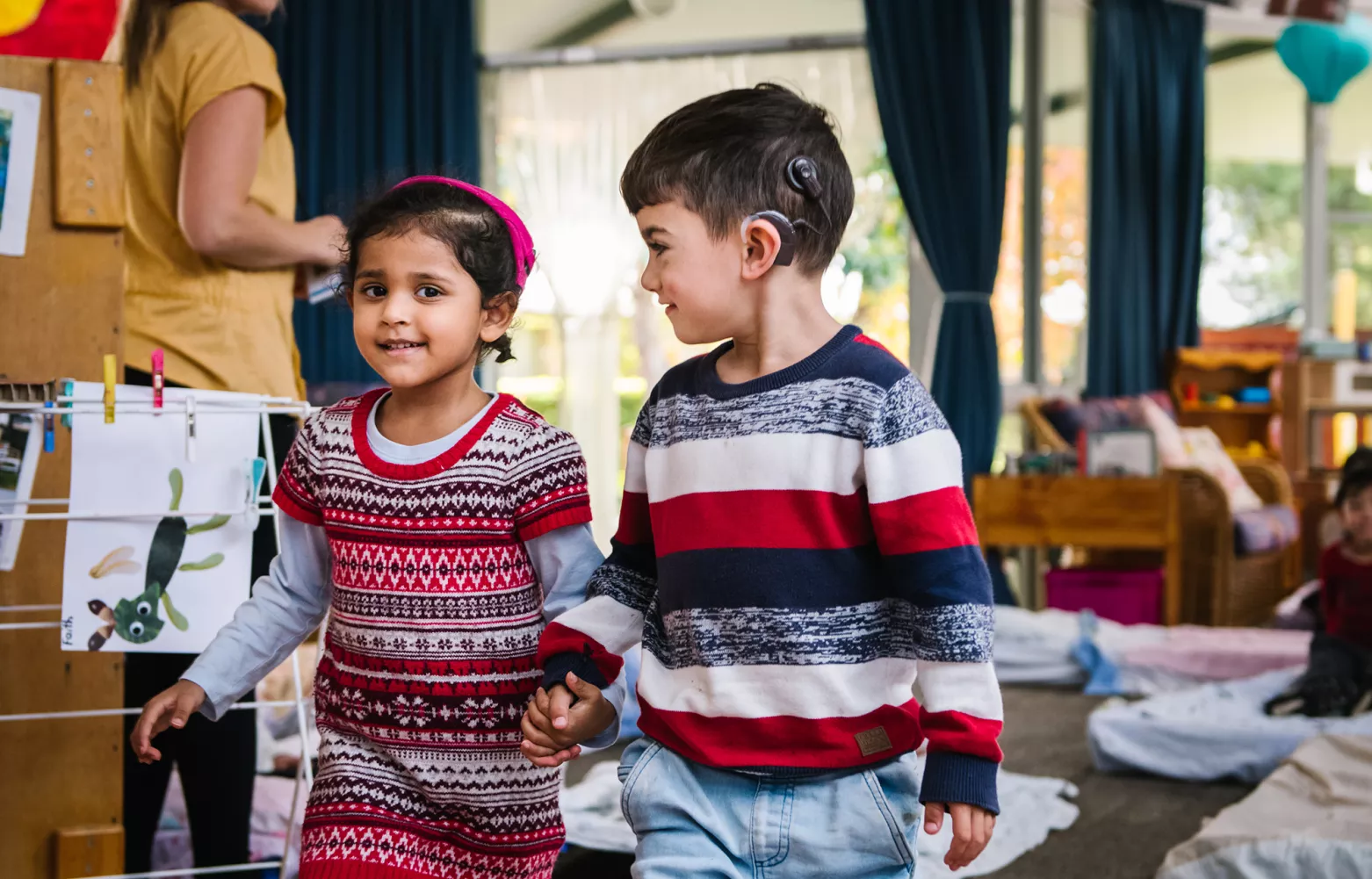- Home
- BELONGING, BEING & BECOMING - THE EARLY YEARS LEARNING FRAMEWORK
- (EYLF) PRINCIPLES
- (EYLF) Equity, inclusion and high expectations
Table of contents
- BELONGING, BEING & BECOMING - THE EARLY YEARS LEARNING FRAMEWORK
- (EYLF) INTRODUCTION
- (EYLF) A VISION FOR CHILDREN'S LEARNING
- (EYLF) ELEMENTS OF THE EARLY YEARS LEARNING FRAMEWORK
- (EYLF) EARLY CHILDHOOD PEDAGOGY
-
(EYLF) PRINCIPLES
- (EYLF) Secure, respectful and reciprocal relationships
- (EYLF) Partnerships
- (EYLF) Respect for diversity
- (EYLF) Aboriginal and Torres Strait Islander perspectives
- (EYLF) Equity, inclusion and high expectations
- (EYLF) Sustainability
- (EYLF) Critical reflection and ongoing professional learning
- (EYLF) Collaborative leadership and teamwork
- (EYLF) PRACTICES
- (EYLF) THE EARLY YEARS LEARNING FRAMEWORK PLANNING CYCLE
- (EYLF) LEARNING OUTCOMES
- (EYLF) GLOSSARY OF TERMS
- (EYLF) REFERENCES
Need help using the guide? Visit our help section.
(EYLF) Equity, inclusion and high expectations
Educators who are committed to equity recognise that all children have the right to participate in inclusive early childhood settings, regardless of their circumstances, strengths, gender, capabilities or diverse ways of doing and being. They create inclusive learning environments and adopt flexible and informed practices, including making reasonable adjustments to optimise access, participation and engagement in learning. This supports wellbeing and positive outcomes for children in all their diversities. Reasonable adjustments2 are the measures or actions taken by approved providers and educators to assist the meaningful participation of children with disabilities or who are experiencing barriers to learning. Educators nurture children’s optimism, happiness and sense of fun and support children’s friendships and interactions with each other.

Educators engage in critical reflection, challenge practices that contribute to inequities or discrimination and make curriculum decisions that promote genuine participation and inclusion. To support all children’s inclusion, they recognise and respond to barriers that some children face, including attitudinal and practical barriers. Such barriers can be related to disability, family diversity, cultural and linguistic diversity, neurodiversity, and children and families living through trauma and adversity.
Educators view all children as competent and capable and hold high expectations for their learning. They strive to provide all children with equitable and participatory environments and experiences to promote their learning, development and wellbeing. In doing this, educators recognise that equitable means fair, not equal or the same, and some children may need greater access to resources and support to participate in early childhood settings. By developing their professional knowledge and skills, and working in partnership with children, families, communities and other professionals, educators continually strive to find equitable and effective ways to ensure that all children have opportunities to achieve Learning Outcomes and flourish.
2 Disability Standards for Education 2005 (Cth) s. 3 (Austl.).